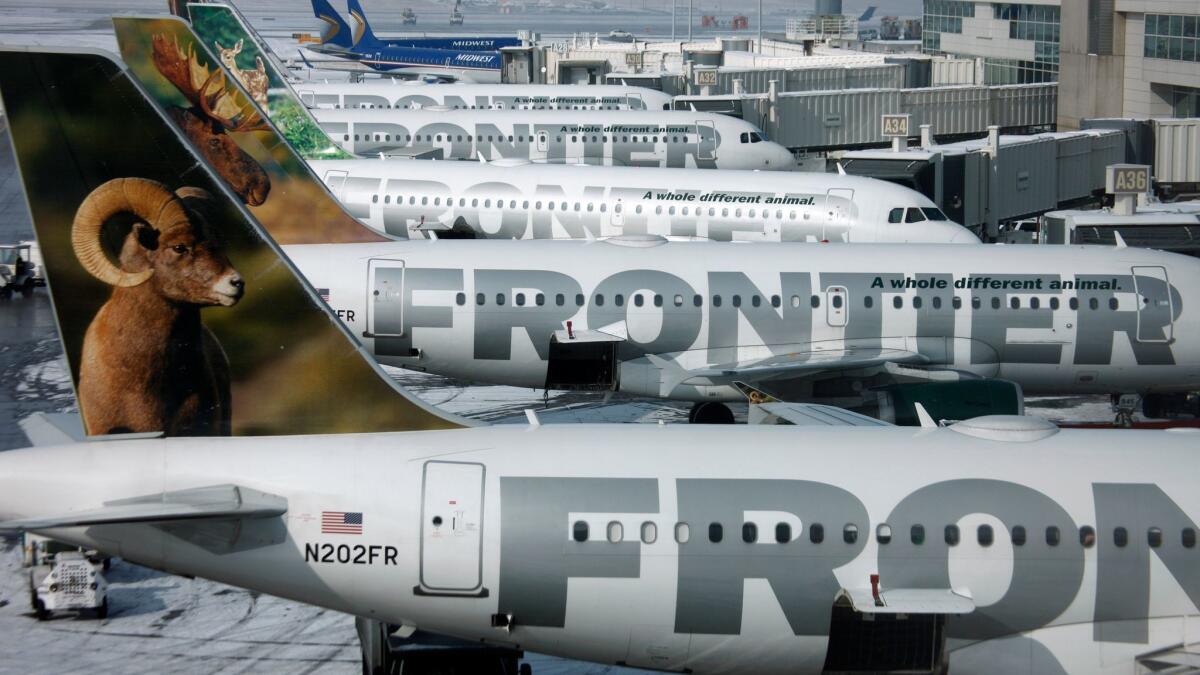No-frills, basic-economy tickets are still not the cheapest way to fly

- Share via
To fend off low-cost competitors, American and United airlines last month began selling bare-bones tickets called “basic economy” fares that don’t allow changes, cancellations or upgrades.
Basic economy passengers are allowed onboard the plane last and can bring only a small carry-on bag that fits under the seat. If they bring a bigger carry-on bag for the overhead bin, they must pay a “gate fee” in addition to a checked-baggage fee.
With all of those restrictions, you might expect that the basic economy fares would be a lot cheaper than seats offered by low-cost carriers such as Spirit and Frontier airlines. Not always.
A study by ThePointsGuy, a travel tips website, found that American and United basic economy seats can be up to 185% more expensive than seats offered by low-cost carriers.
The study reached this conclusion by examining 10 routes flown by American and seven routes by United — routes also served by low-cost carriers.
For example, on flights from Louis Armstrong New Orleans International Airport to Philadelphia International Airport, a basic economy seat on American sells for an average of $136, or 51% more than a seat on Frontier Airlines, according to the study, which calculated fares from March 1 to April 30.
Representatives from the two airlines defended their new fares, saying the basic economy seats come with more convenient schedules plus food and entertainment amenities not offered by low-cost carriers.
“Basic economy allows our customers to adapt their travel experience to their needs,” American spokeswoman Polly Tracey said. “It’s not a new discount, but a new set of attributes for our lowest fares.”
To read more about the travel and tourism industries, follow @hugomartin on Twitter.
More to Read
Inside the business of entertainment
The Wide Shot brings you news, analysis and insights on everything from streaming wars to production — and what it all means for the future.
You may occasionally receive promotional content from the Los Angeles Times.











